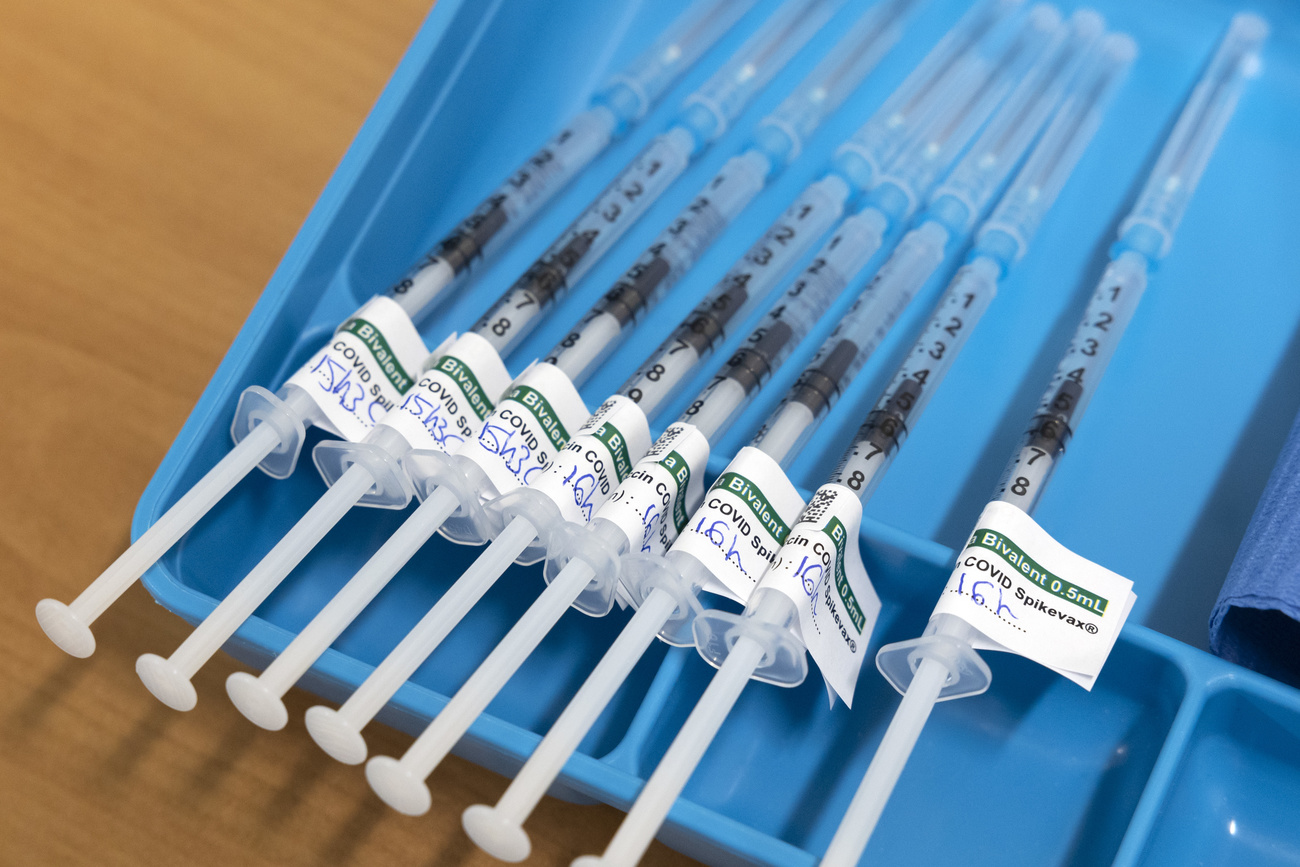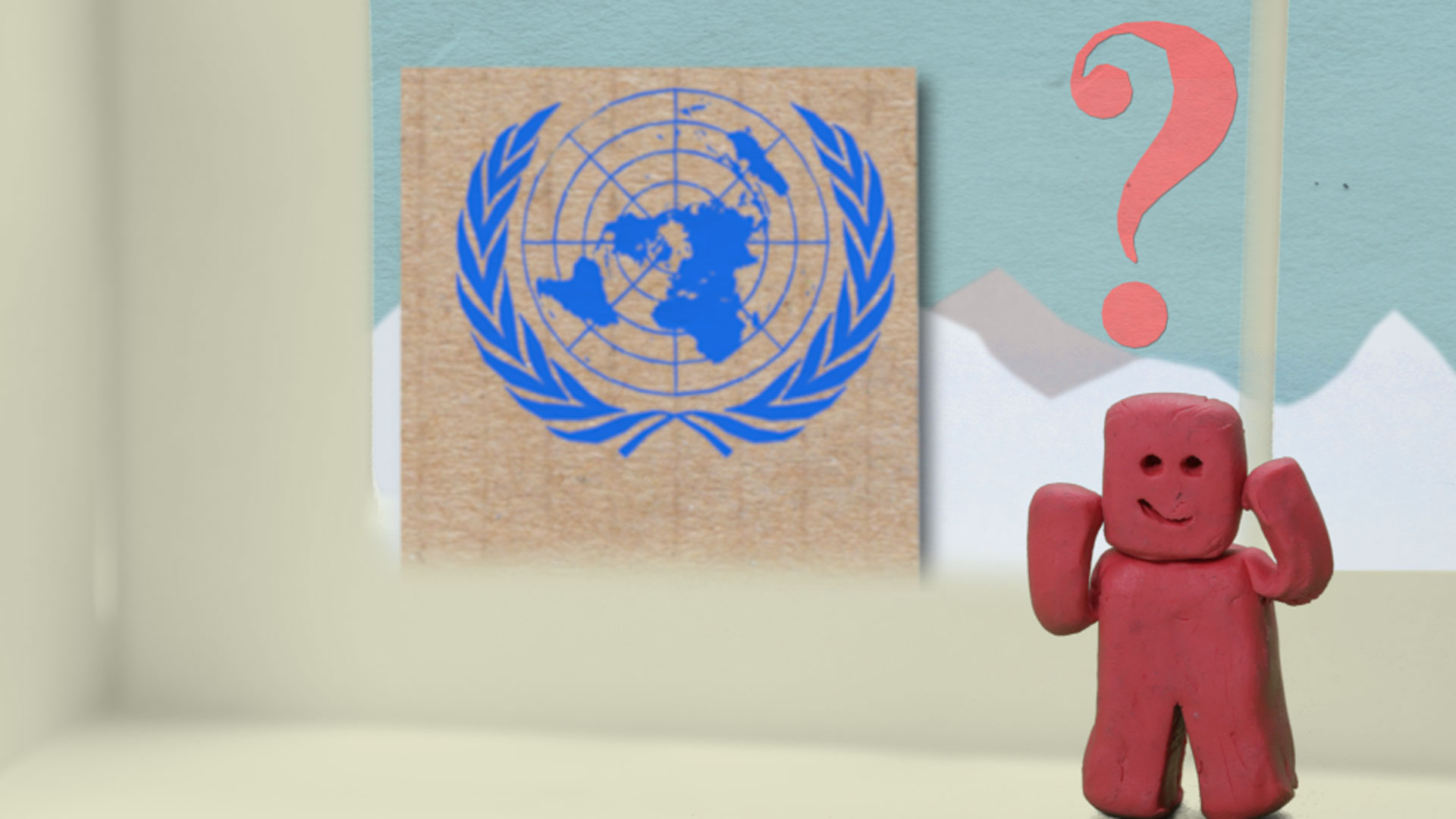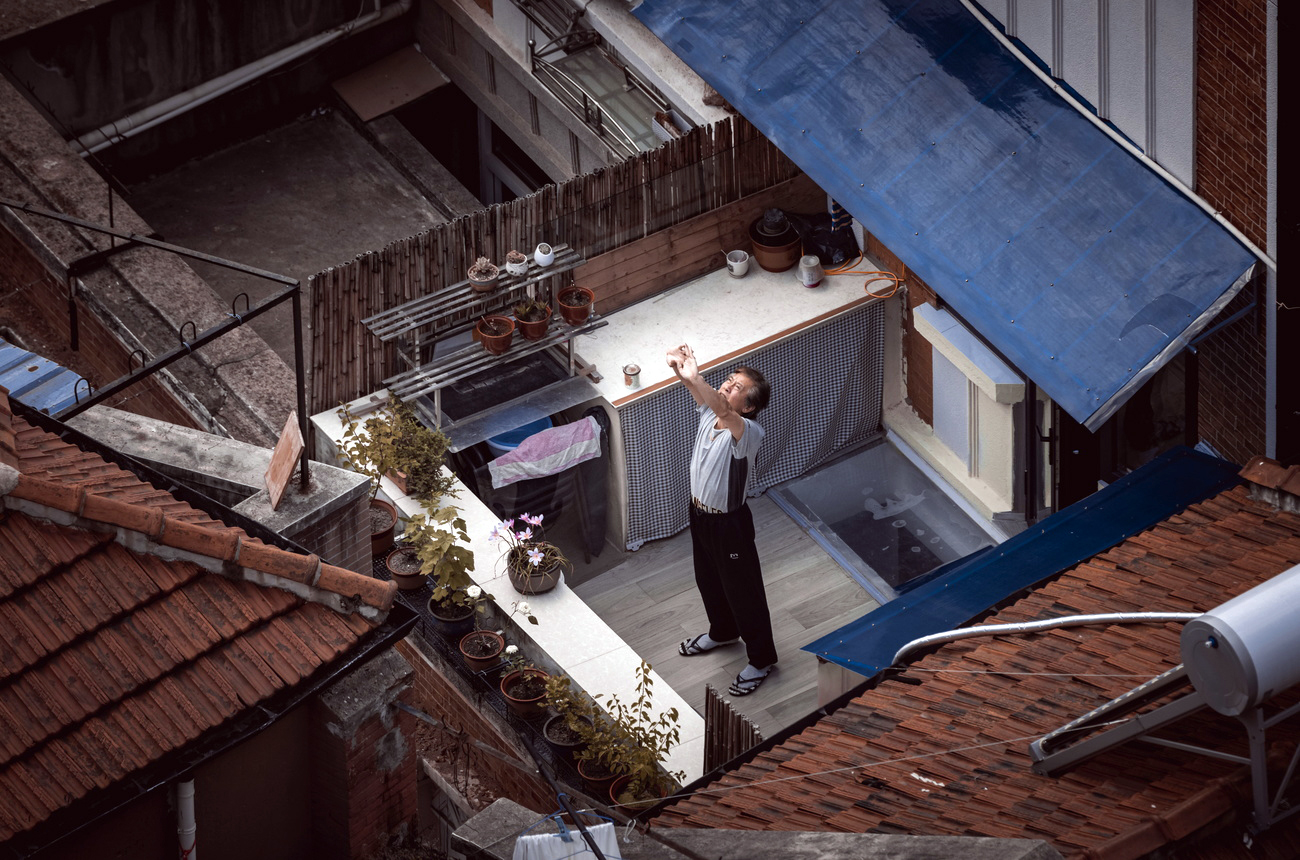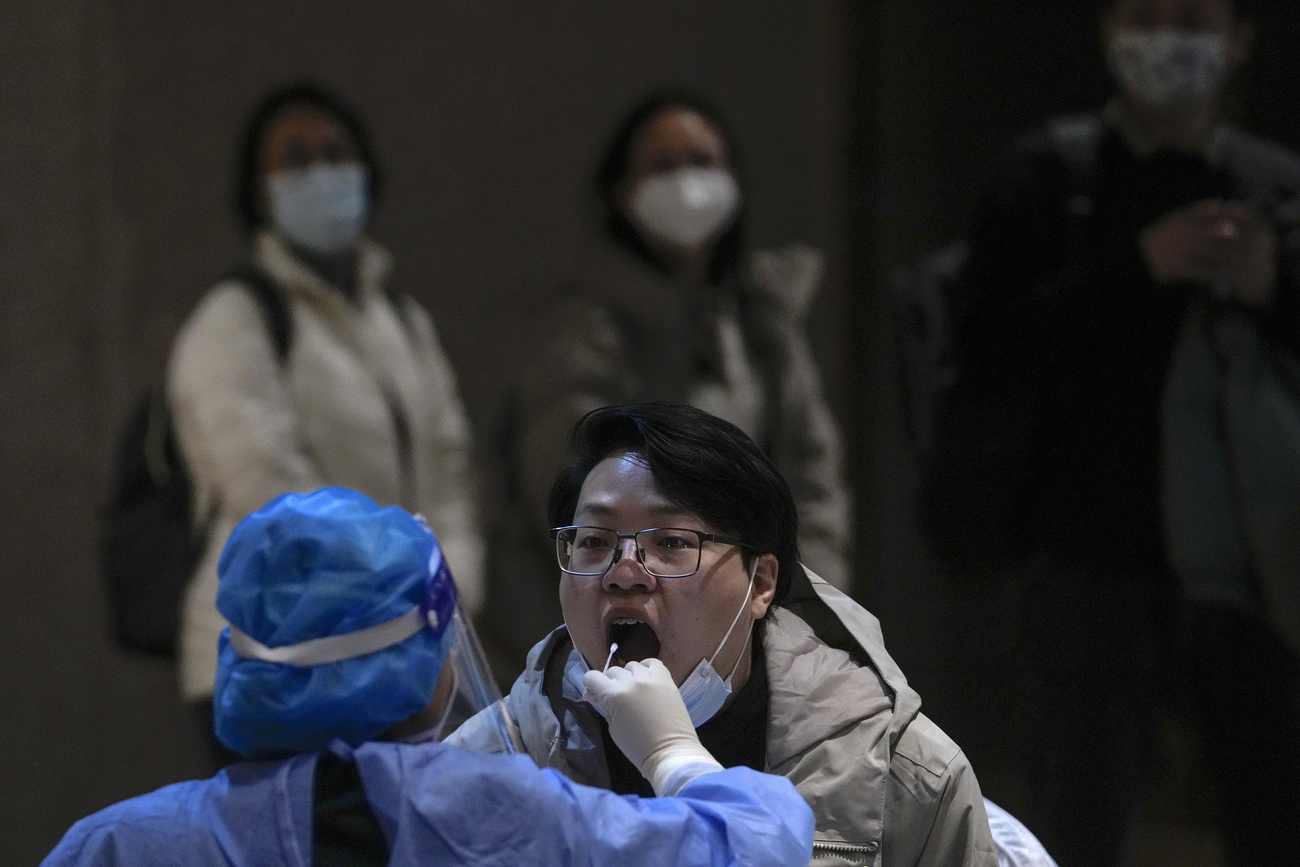WHO members meet – again – to discuss a pandemic treaty

The member states of the World Health Organization (WHO) are negotiating an agreement for a pandemic treaty. While developing countries hope for more support, industrialised countries such as Switzerland insist on upholding the current patent law.
Almost no country in the world was adequately prepared for the Covid-19 pandemic which hit the world at the end of 2019. While several pharmaceutical companies were able to develop vaccines against the virus relatively quickly, in some cases with enormous public investment, production capacities were not immediately sufficient to provide vaccines to all countries.
The 194 member states of the WHO now want to be better prepared for future pandemics. An agreement has been in the works since the end of 2021. At the beginning of November this year member states began debating a concrete text for the first time in Geneva. This week members are meeting for a seventh round of intergovernmental negotiations.
As is usually the case at the WHO, this agreement is to be reached by consensus. Discussions between countries mostly in the Global South and those in the Global North show that there is still a long way to go.
Opportunity for cooperation
The focus of the agreement is on ensuring that all countries have equal access to the tools required to prevent and combat pandemics. In addition, the treaty would ensure the WHO has the ability to monitor pathogens – this includes expertise and technologies such as vaccine production and protective equipment. The WHO also wants to make sure the necessary medical care is accessible all around the world.
From the perspective of Doctors Without Borders, drafting this agreement offers an opportunity for states to work together, Yuan Hu, a health policy expert for the NGO, told SWI swissinfo.ch. She says the treaty negotiated by the governments should protect medicines as a public good and uphold the right to “the highest attainable standard of health” in accordance with the WHO constitution.
So far, WHO member states have already agreed that the principle of “One Health” should apply, which simultaneously takes into account the health of humans, animals and the environment. The aim is to prevent pathogens from being transmitted from animals to humans.
They also agreed that countries are to work together on an interdisciplinary basis at a national and an international level to monitor the development of pathogens. However, there are still differences before a treaty is inked, for example with regard to “benefit sharing”. Countries would be required to send relevant strains of pathogens to WHO laboratories so that pharmaceutical companies can produce vaccines and other medical products. In return, the countries concerned should receive these products at a reduced price, or in some cases free of charge. Developing countries argue they need better conditions for access to these medicines.

More
Covid-19: WHO really calls the shots?
Developing countries demand more equality
National positions still differ widely on other decisions. For example, industrialised countries want to focus more on prevention, while developing countries emphasise that equitable access to medical products such as vaccinations, medicines and diagnostic tests should be guaranteed for all and a key focus of the treaty. They criticise wealthy countries for hoarding scarce vaccines and therapeutics for their own use during the Covid-19 pandemic.
They argue that the treaty negotiated so far demands a great deal from them in terms of prevention, while the measures for equitable access to diagnostics and medical products are vaguely formulated. During previous negotiations, South Africa requested on behalf of 29 countries in the Group of Equity, which comprises countries from Africa, Asia and Latin America, that the principle of common but differentiated responsibilities, which had been removed from the text, be retained. This is essential for a fairer outcome, it said.
Brazil, which is also part of the Group of Equity, pointed out that industrialised countries are already fulfilling the many obligations set out in the agreement. “For us, the finish line lies further ahead in terms of what we still need to build,” explained Brazil’s delegation during previous negotiations. This applies, for example, to the monitoring of pathogens and the One Health commitments, the delegation said.
Another unbalanced element from Brazil’s point of view is the issue of financial and technological resources. While industrialised countries have more money and expertise at their disposal, developing countries often have access to neither, as the technology – for example for vaccine production – is protected by patent rights and is therefore inaccessible or too expensive. Due to this imbalance, “we must recognise different capacities, but also different obligations”, Brazil emphasised.

More
How committed is the world to a stronger WHO?
Commitments from industrialised countries too
Brazil maintains that industrialised countries should make more commitments in terms of technology transfer and intellectual property. The latter concerns, for example, patent rights for vaccines and medicines. NGOs also believe that prevention and access to tests, vaccines, treatments and medical equipment such as oxygen machines need to be discussed.
“It is hypocritical to demand a lot from developing countries in terms of prevention and to impose fewer obligations on industrialised countries in terms of access to medical products,” said Gabriela Hertig from Swiss NGO Public Eye. She added that extending access would threaten their own interests and the enormous profits of companies based in industrialised nations.
Hu from Doctors Without Borders also considers commitments to technology transfers to be important. This would also enable developing countries to produce diagnostic tests, vaccines and medicines, she said.
Opposition to relaxing patent rights
The United States, EU states and Switzerland are critical of calls to relax patent rights. They also have reservations about demands for technology transfer.
“The United States believes strongly in the protection of intellectual property, which promotes investment and innovation,” the US delegation explained during previous negotiations. Aspects like vaccine development, which worked in the fight against the Covid pandemic, should not be undermined (for example through a temporary restriction of patent rights in order to produce cheaper generics).
The US delegation went on to argue that cancelling intellectual property protection would not improve fair access in pandemic emergencies, but instead diminish it. The International Federation of Pharmaceutical Manufacturers and Associations also spoke out in favour of retaining patent rights. “No pandemic treaty is better than a bad one,” it said in a statement posted on its website.
The EU said that it and its member states are committed to addressing gaps in capacity in developing countries, for example through the World Bank’s pandemic fund. The fund was set up after the Covid pandemic as a collaborative partnership among donor countries, foundations and civil society organisations.
For Switzerland, an early warning system and the reporting and exchange of information relevant to the pandemic are important. Switzerland therefore supports the section on prevention in the text, but it needs to be strengthened, a Swiss delegate said at the start of the negotiations. The provisions in the text on making patent rights more flexible, on the other hand, should be the domain of other organisations, namely the World Trade Organization and the World Intellectual Property Organization, the delegate said.
In favour of transparency
According to Doctors Without Borders and Public Eye, the costs of research and development of medicines and other medical goods must be transparent. This applies in particular to public investments, which were important for vaccine development during the Covid-19 pandemic. These investments must be linked to conditions regarding access and price, they said. Doctors Without Borders is also calling for standards for global stockpiling and for the allocation of medical supplies to countries.
The financing of the various measures has not yet been addressed. While Brazil, for example, is demanding binding commitments in this regard, industrialised countries, including Switzerland, do not want to create any new bodies but instead want to rely on the World Bank’s pandemic fund.
The negotiations will continue from December 4-6. Further consultations are planned for mid-February. The agreement is to be adopted by the World Health Assembly in May. However, some observers expect the consultations to take longer.
Edited by David Eugster/Virginie Mangin. Translated from German by Catherine Hickley.

More
How the World Health Organization is trying to learn lessons from Covid-19

In compliance with the JTI standards
More: SWI swissinfo.ch certified by the Journalism Trust Initiative
You can find an overview of ongoing debates with our journalists here. Please join us!
If you want to start a conversation about a topic raised in this article or want to report factual errors, email us at english@swissinfo.ch.